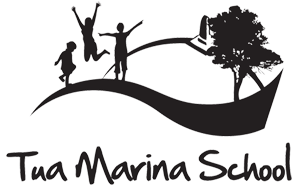In Health and Physical Education, students learn about their own well-being, and that of others and society, in health-related and movement contexts.
Beliefs
Students need to develop the knowledge, skills and attitudes to enable them to focus is on the well-being of themselves, of other people, and of society through learning in health-related and movement contexts.
Learning Goals
Through our teaching and learning programmes our students should:
-
- Understand the Māori philosophy of Hauora – well-being that includes the dimensions taha wairua, taha hinengaro, taha tinana, and taha whānau, each one influencing and supporting the others.
- Develop a positive, responsible attitude to their own well-being; respect, care, and concern for other people and the environment; and a sense of social justice.
- Develop a way of viewing and understanding the interrelationships that exist between the individual, others, and society (socio-ecologicla perspective).
- Develop and maintain supportive physical and emotional environments that involve students in personal and collective action.
- Accepting challenges in health-related and movement contexts
- Reflect on the nature of well-being and how to promote it
- Develop resilience and a sense of personal and social responsibility.
- Take responsibility for themselves and contribute to the well-being of those around them, of their communities, of their environments (including natural environments), and of the wider society.
- Learn about Health and PE through the seven key areas of learning (mental health, sexuality education, food and nutrition, body care and physical safety, physical activity, sport studies, and outdoor education) in the following strands:
- Personal health and physical development – students develop the knowledge, understandings, skills, and attitudes that they need in order to maintain and enhance their personal well-being and physical development.
- Movement concepts and motor skills – students develop motor skills, knowledge and understandings about movement, and positive attitudes towards physical activity.
- Relationships with other people – students develop understandings, skills, and attitudes that enhance their interactions and relationships with others.
- Healthy communities and environments – students contribute to healthy communities and environments by taking responsible and critical action.
Teaching and Learning Guidelines
Our teaching and learning programmes will:
- Provide meaningful contexts
- Be integrated with Inquiry Learning Units and taught as Stand-Alone Health or PE lessons as appropriate
- Reflect the Tua Marina Health Overview and Tua Marina PE Overview
- Follow our school Values Programme
- Model a positive attitude and healthy choices including a fair and consistent behaviour management programme
- Link to key competencies, principles and values
- Consider the learning environment – intellectual, emotional, physical, and cultural engagement
- Use a variety of teaching strategies
- Incorporate ICT and Thinking Skills when appropriate
- Make use of staff/student strengths and community expertise eg Life Education, Police Education, sports coaches, peer mediators, etc
Planning
- The New Zealand Curriculum will provide the basis for the teaching and learning programmes.
- Consultation with our Tua Marina School Community every two years regarding implementing the Health Programme.
- Refer to PEAK Inquiry Learning Model and MOE resources when planning e.g. TKI
- Planning will follow a coherent pathway from curriculum plans to long term plans to unit or weekly planning to teaching and learning
- Assessment data and information about students will be used to determine the teaching & learning programme.
Assessment
Information on student achievement will be gathered and analysed through a range of assessment practices e.g. rubrics, self/peer assessment, observation, NEMP tasks, etc.


